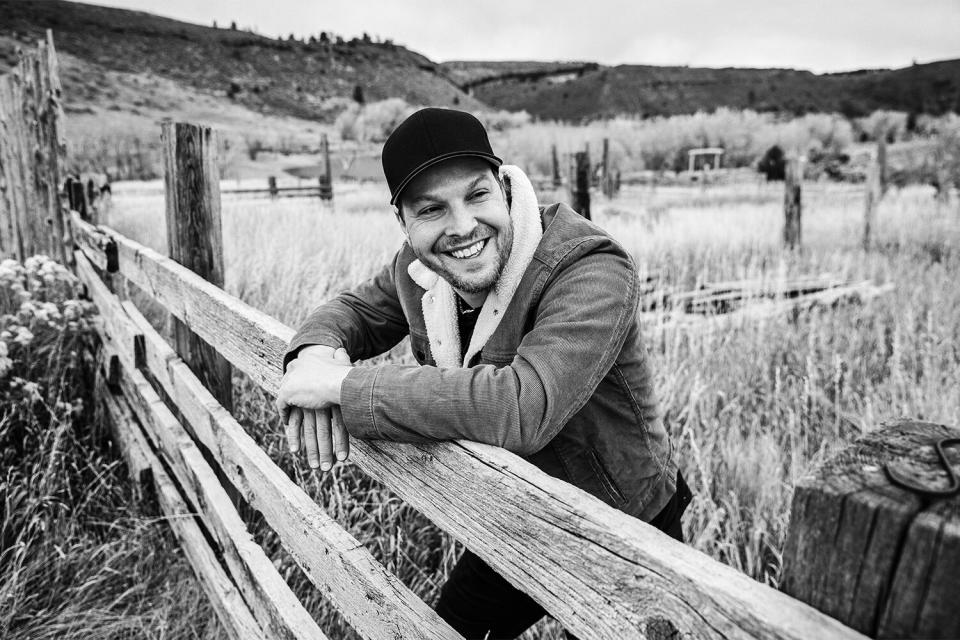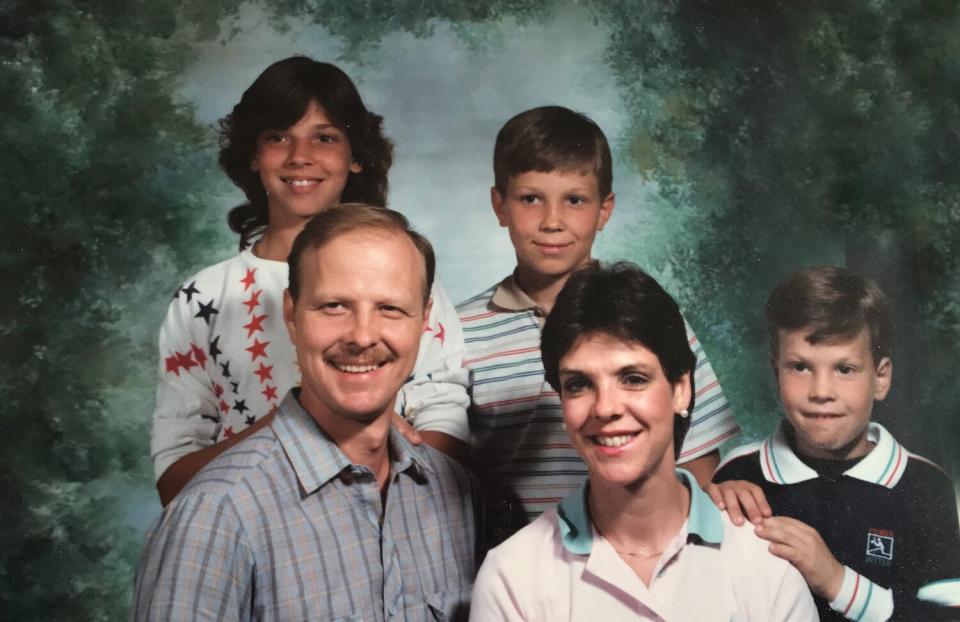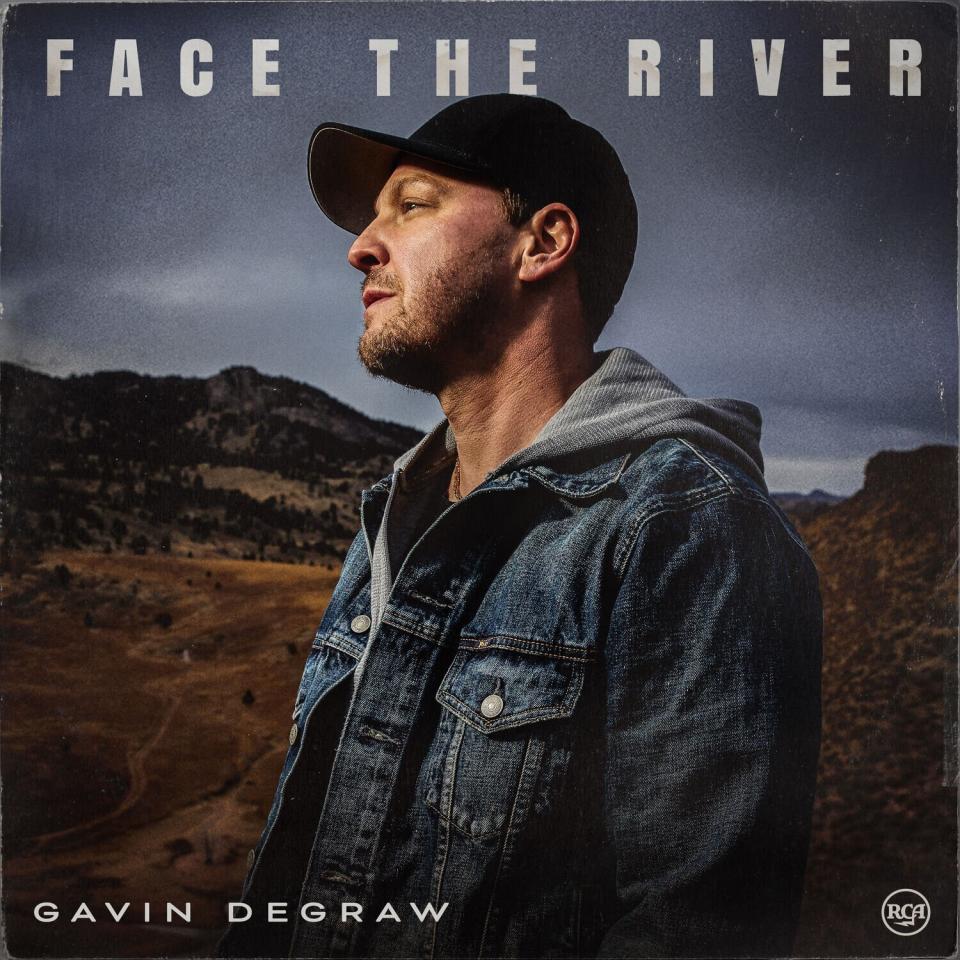Gavin DeGraw Uses Songwriting as 'Therapy' After Losing His Parents on New Album Face the River
- Oops!Something went wrong.Please try again later.
- Oops!Something went wrong.Please try again later.
As the world dealt with the effects of the COVID pandemic in 2020, Gavin DeGraw was in a time crunch.
The singer-songwriter had already been hard at work on what would become his seventh album, Face the River, when he was dealt an unthinkable blow: his beloved father, John Wayne, was sick, and likely wouldn't live for much longer.
DeGraw, 45, was familiar with the feeling, as he'd lost his mother, Lynne, to pancreatic cancer in 2017. But this time, he had a record on the horizon, one that had been inspired by his parents — and one that he needed his dad to hear before he was able to let go.
"As his progression got worse and worse, it really became more of a race against time. I was hoping he would get better, but then I was thinking, 'God, if he doesn't get better, I want him to hear this,'" DeGraw tells PEOPLE. "I really wanted him to hear it because it was dedicated to them. This was their record."

Jason Goodrich Gavin DeGraw
Raised in the Catskills by Lynne and Wayne, a prison guard at the New York State Department of Corrections, DeGraw — who has an older sister and an older brother — had already decided that the album would be one that would tell their family story. Tracks like "Hero In My House" are dedicated to Lynne, while "Freedom" puts dad's life path to song. The former track was written after Lynne's death; two weeks after that, DeGraw's grandmother died, and six months later, he lost his grandfather.
Listen below to an interview with Gavin DeGraw on our daily podcast PEOPLE Every Day.
Not long after, Wayne underwent open-heart surgery, then suffered a mild stroke. He was eventually diagnosed with brain cancer and died in July 2020 — after getting to hear Face the River, much to DeGraw's relief.
"It was just this horrible series of events. [But] I feel like I finished it in the nick of time and played it for him in the nick of time, and that personally was important to me," he says, adding that his dad's response was, "Full circle," a reference to the album's stripped-back sound reminiscent of his early releases.

Courtesy DeGraw Family The DeGraw Family
Though Wayne died almost two years ago, DeGraw says that releasing the album any sooner would have taken too much of an emotional toll, as he wrote it from a "therapeutic standpoint" as a way of channeling his grief.
"I don't know if I would've been able to cope with singing the material on a regular basis," he says. "Songwriting has always been therapy for me. I wanted to pay homage to them— but this is not a funeral record, it's a living record. I like to provide hope. I wanted them to live on in the best light through songs."

Jason Goodrich
DeGraw admits he made it through "little breakdowns" while recording with producer Dave Cobb in Nashville, but ultimately feels as though he's provided others who feel like him with a place to go in the form of music.
Inspired by his dad's reaction to the record, the singer set off on his Full Circle tour last month, and will wrap it on Saturday at the aptly-named Bitter End in New York City, where he played his first-ever gig in the city.
Though the album is a tribute to his family, there are still plenty of hits, including the breezy "Summertime" and the mid-tempo "Chasing When."
The songs bring to mind DeGraw's breakthrough hit "I Don't Want to Be," which will celebrate its 20th birthday next year.
"I never thought it was a hit song, never expected it to be successful. It's all been great," he says. "I wrote a song about identity and being cool with whatever you were, being able to wave your own flag at the time, even if it's not getting celebrated. I certainly never thought the song would become part of pop culture, specifically because I wrote it as a rejection of pop culture as a whole. It's funny really, it's hysterical to me. But I'm happy with it!"
Face the River is out now.

